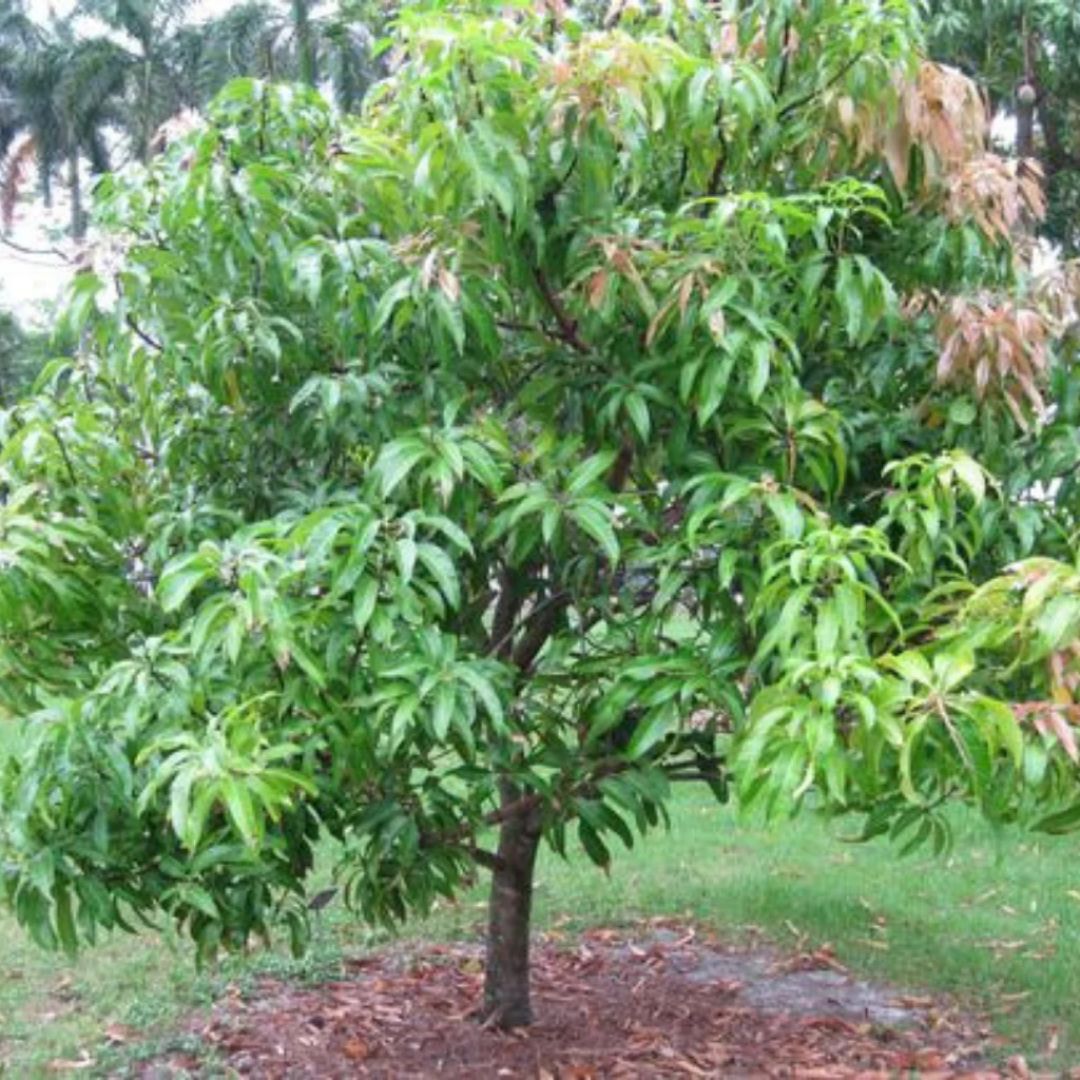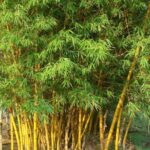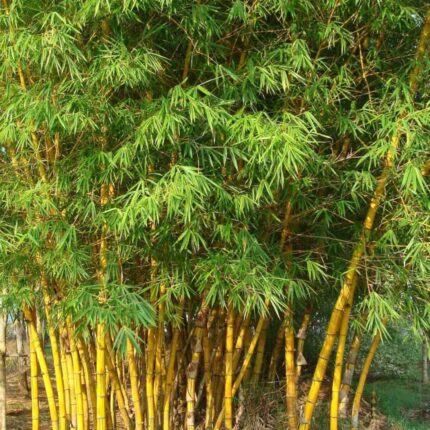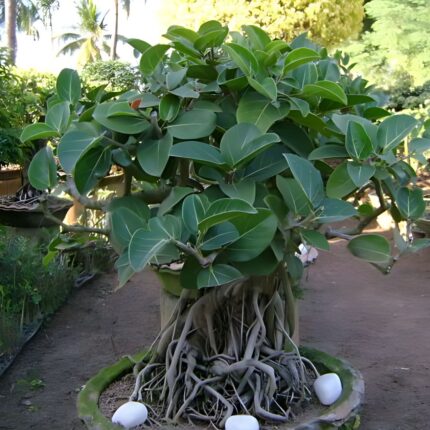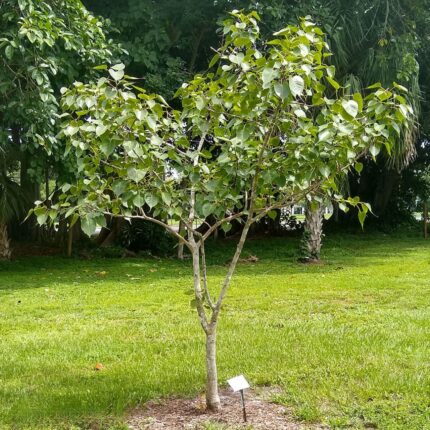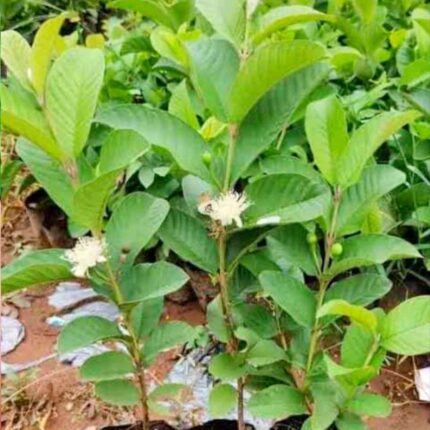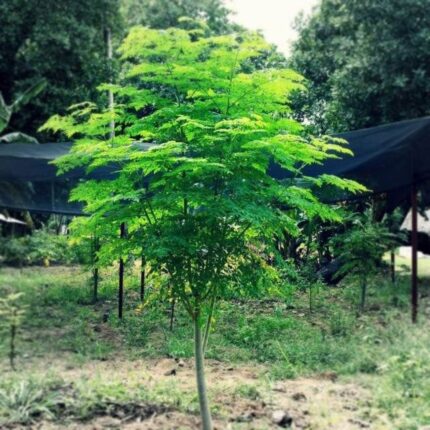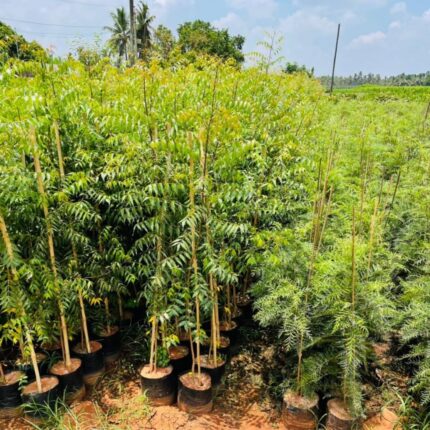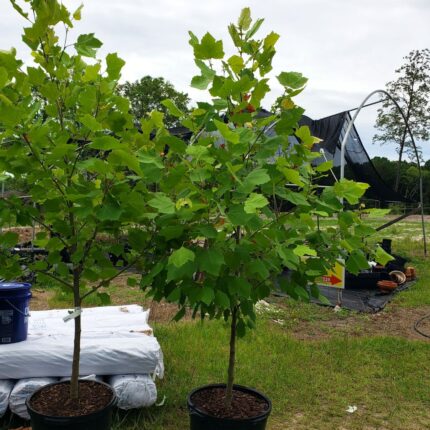Mango (आम)
₹2,998.00
Mango trees are evergreen and can grow up to 30-40 meters tall, with a canopy that can span several meters wide. The leaves are long and glossy, and the tree produces fragrant, small white or pink flowers. The fruit varies in size, shape, and color, but is typically oval or round, with a skin that can range from green to yellow to red when ripe. The flesh inside is juicy and sweet, surrounding a large, flat seed.
Description
Common Names
- Mango tree
Benefits
- Nutritious Fruit: Mangoes are rich in vitamins A, C, and E, as well as dietary fiber and antioxidants. They contribute to a healthy diet and provide numerous health benefits.
- Shade Provider: Mango trees have dense canopies that provide ample shade, making them excellent for planting in gardens, parks, and public spaces.
- Air Quality Improvement: Like other trees, mangoes absorb carbon dioxide and release oxygen, improving air quality and helping to mitigate climate change.
- Soil Stabilization: The extensive root systems of mango trees help prevent soil erosion, especially in areas prone to degradation.
Uses
- Culinary: Mangoes can be eaten fresh or used in a variety of culinary applications. They are a popular ingredient in smoothies, salads, desserts, and savory dishes. Mangoes can also be processed into juices, jams, preserves, and pickles.
- Medicinal: Various parts of the mango tree, including the bark, leaves, and seeds, are used in traditional medicine. Mango leaves are often used in herbal remedies for their potential to help manage diabetes and reduce blood pressure.
- Wood: The wood of the mango tree is durable and is used in the production of furniture, flooring, and other wooden products. It is also used as a fuel source in some regions.
- Cultural Significance: In many cultures, mangoes hold significant cultural and religious value. The fruit is often used in rituals and celebrations, and the tree is considered sacred in some traditions.
Growing Conditions
- Climate: Mango trees thrive in tropical and subtropical climates. They require a warm environment with temperatures ideally between 24-30°C (75-86°F). They are sensitive to frost and prolonged cold temperatures.
- Soil: Mango trees prefer well-drained, sandy loam soil but can adapt to a variety of soil types as long as there is good drainage. They do not thrive in waterlogged soils.
- Watering: While young mango trees need regular watering to establish their root systems, mature trees are relatively drought-tolerant. Overwatering can be detrimental, so it’s important to allow the soil to dry out between waterings.
- Sunlight: Mango trees require full sun for optimal growth and fruit production. They should be planted in a location that receives at least 6-8 hours of direct sunlight each day.
Maintenance
- Pruning: Regular pruning helps maintain the shape of the mango tree and promotes healthy growth. Removing dead or diseased branches improves air circulation and sunlight penetration.
- Fertilization: Mango trees benefit from periodic fertilization, especially during their growing season. A balanced fertilizer with nitrogen, phosphorus, and potassium supports healthy growth and fruit production.
- Pest and Disease Control: Common pests affecting mango trees include fruit flies, aphids, and mealybugs. Diseases such as anthracnose and powdery mildew can also affect mango trees. Regular monitoring and appropriate treatments help manage these issues.
By planting and nurturing mango trees, we not only enjoy their delicious fruits but also contribute to a healthier and more sustainable environment. Join us in our efforts to promote the growth and care of this remarkable tree species.
Related products
Bamboo (बांस)
₹2,998.00
Banyan (बरगद)
₹2,998.00
The Banyan tree, scientifically known as Ficus benghalensis, is a large, evergreen tree renowned for its extensive canopy and aerial roots. Native to the Indian subcontinent, it is considered a symbol of immortality and longevity in many cultures. The tree is known for its wide spread, often covering several acres with its expansive branches and roots that descend from its branches to the ground, forming additional trunks.
Ficus Religiosa (पीपल)
₹2,998.00
Guava (अमरूद)
₹2,998.00
Moringa (सहजन)
₹2,998.00
Moringa, often referred to as the "miracle tree," is a highly versatile and resilient plant native to the Indian subcontinent. It is renowned for its exceptional nutritional value, medicinal properties, and environmental benefits. Moringa is widely cultivated in tropical and subtropical regions around the world.
Neem (नीम)
₹2,998.00
Neem is a fast-growing, evergreen tree native to the Indian subcontinent. It can reach a height of 15-20 meters (49-66 feet), and in rare cases, up to 35-40 meters (115-131 feet). It is known for its robust structure, bright green foliage, and fragrant white flowers. The tree produces small, olive-like fruit that turns yellow when ripe.
Sycamore (गूलर)
₹2,998.00
The sycamore tree (Platanus occidentalis) is a large, deciduous tree native to North America. Known for its distinctive mottled bark and broad canopy, the sycamore is a majestic presence in many landscapes. The tree can reach heights of 70 to 100 feet or more, with a trunk diameter often exceeding 3 to 8 feet. Its leaves are broad, with three to five lobes, resembling those of a maple tree, and can grow up to 10 inches wide.

